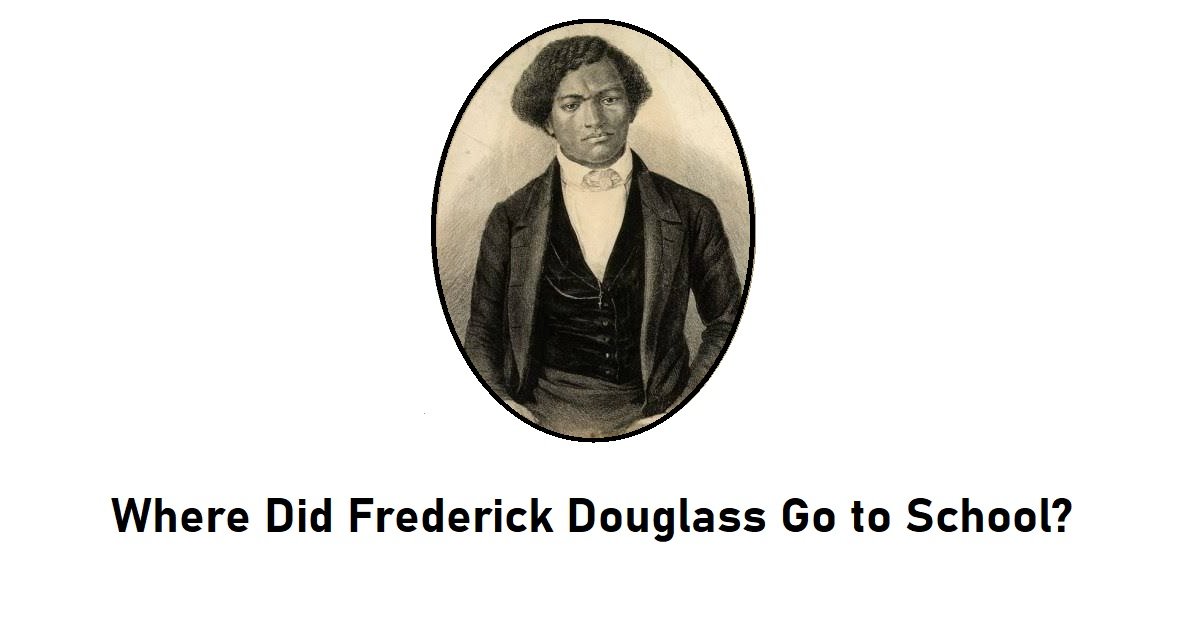Introduction
Frederick Douglass, one of the most influential figures in American history, was born into slavery in 1818. Despite his humble beginnings, he went on to become a prominent abolitionist, writer, and orator. His remarkable journey from slavery to freedom is well-documented, but where did Frederick Douglass go to school? This article delves into the educational experiences of Frederick Douglass and how they shaped his life and legacy.
Early Years and Forbidden Education
Frederick Douglass was born as Frederick Augustus Washington Bailey, and like many enslaved African Americans during that time, he had no access to formal education. In the antebellum South, educating enslaved people was illegal and considered a threat to the institution of slavery, as literacy often empowered individuals to question their oppressed status.
However, despite these harsh restrictions, Douglass displayed an insatiable thirst for knowledge from a young age. His owner’s wife, Sophia Auld, initially taught him the alphabet and some basic reading skills before her husband forbade her from continuing. Douglass continued his education in secret, often by trading bread for lessons from white children he befriended. He also learned to read and write by studying newspapers and books whenever he had the opportunity.
Looking for high-quality phone accessories that are perfect for your household? Look no further! Our phone accessories are designed to meet the needs of any household, whether you’re looking for stylish cases to protect your phone or chargers to keep your devices powered up and ready to go. With a wide range of products to choose from, you’re sure to find the perfect phone accessory for your household needs. Shop now and experience the convenience and functionality of our top-quality phone accessories!Douglass’s Time in Baltimore
When Douglass was around 12 years old, he was sent to Baltimore, Maryland, to work for a new master, Hugh Auld. Baltimore proved to be a pivotal point in Douglass’s life. Hugh Auld’s wife, Sophia, had grown up in a more cosmopolitan environment and was initially more lenient about teaching Douglass. Under her guidance, he continued to expand his literacy and knowledge.
In Baltimore, Douglass was able to gain access to books and newspapers more freely, allowing him to further develop his reading and writing skills. He read works by famous orators and thinkers of the time, including the Columbian Orator, which helped shape his passion for public speaking and his anti-slavery beliefs.
Formal Education and Freedom
Douglass’s thirst for knowledge was unquenchable, and as he continued to educate himself, he became increasingly aware of the injustices of slavery. He began to plan his escape, and in 1838, at the age of 20, he successfully escaped from slavery and made his way to the free North.
After his escape, Douglass settled in New Bedford, Massachusetts, where he began attending anti-slavery meetings and became involved in the abolitionist movement. It was in New Bedford that he adopted the name “Frederick Douglass,” to avoid detection by slave catchers.
While Douglass did not attend a formal school during his enslavement, his relentless pursuit of knowledge and his ability to educate himself in secret played a crucial role in his later accomplishments. His experiences as an enslaved individual and his self-education provided him with a unique perspective on the institution of slavery and fueled his passion for advocating for its abolition.
Later Years and Educational Advocacy
Throughout his life, Frederick Douglass remained a strong advocate for education, particularly for formerly enslaved people. He believed that education was essential for African Americans to achieve full equality and citizenship in the United States.
Douglass went on to become a renowned orator, author, and journalist. His autobiographical works, such as “Narrative of the Life of Frederick Douglass, an American Slave,” not only exposed the brutality of slavery but also showcased the power of education and self-improvement in overcoming adversity.
In 1872, Douglass was appointed as the U.S. Marshal for the District of Columbia, becoming one of the highest-ranking African Americans in the federal government at the time. He continued to advocate for educational opportunities for African Americans throughout his life, emphasizing that education was the key to freedom and equality.
Conclusion
So, where did Frederick Douglass go to school? Frederick Douglass’s journey from slavery to freedom was not marked by attendance at formal educational institutions but by his remarkable self-education. His relentless pursuit of knowledge, despite the oppressive conditions of slavery, enabled him to become a leading abolitionist, writer, and orator who played a pivotal role in the fight against slavery and the quest for civil rights in the United States. Douglass’s life story is a testament to the transformative power of education and the indomitable human spirit. Through the above article, we can recommend you the latest dresses.in a variety of lengths, colors and styles for every occasion from your favorite brands.
